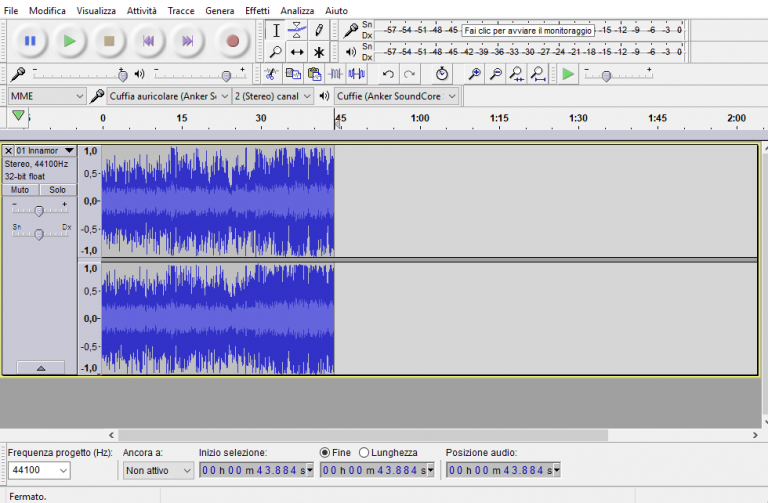

- Install ffmpeg library mac mac osx#
- Install ffmpeg library mac install#
- Install ffmpeg library mac zip file#
- Install ffmpeg library mac manual#
Install ffmpeg library mac zip file#
Otherwise extract the contents of the downloaded ZIP file to obtain the folder to anywhere you have full permissions.
Install ffmpeg library mac mac osx#
Some Mac computers may extract the files from the zip automatically to a new folder in the Downloads directory called: FFmpeg64bit MAC OSX for Audacity. 
In the 64-bit FFmpeg section, left-click the link “FFmpeg64bit_MAC_OSX_for_Audacity_2.3.1_and_above.zip”.It is not recommended to extract the files to /usr/local/lib because administrative or root permissions may be needed to read the FFmpeg library from there.
Install ffmpeg library mac install#
Read more: Install Windows 10 on SSD Effortlessly and Securely | 2 Ways alternative zip up download for expert users who want to choose their own library location
If a “ Success” message indicates Audacity has now automatically detected valid FFmpeg libraries and asks if you want to detect them manually, click No. Click the locate … button to right of FFmpeg Library:. To do this, access Preferences then the “ Libraries “ yellow journalism on the left :Īs in the image above, the “ FFmpeg Library Version ” will say “ FFmpeg library not found “. If you installed FFmpeg while Audacity was running, or if you installed FFmpeg to a non-default location, Audacity will ask you to configure Preferences to locate the FFmpeg library. If you have problems with Audacity detecting FFmpeg, follow the steps below to manually locate FFmpeg. 
 Restart Audacity if it was running when you installed FFmpeg then Audacity should detect FFmpeg automatically. On some Macs the process may look as though it has stalled on “Validating packages” – just be patient and wait for it to complete. This will install the ffmpeg.55.64bit.dylib file in the system library at /Library/Application Support/audacity/libs/. Click through the steps in the installer. You will be guided through the installation. When you have finished downloading, double-click the “ffmpeg_64bit_osx.pkg” in your Downloads folder. In the 64-bit FFmpeg section, left-click the link “ffmpeg_64bit_osx.pkg” and save the file anywhere on your computer. Left-click this link, do not right-click. alternative zip up download for expert users who want to choose their own library location. Installing the 64-bit FFmpeg library will not overwrite or delete your 32-bit FFmpeg library if you have one installed. This means that if you are a exploiter of previous Audacity versions on Mac and had installed the optional FFmpeg library then you must now install the 64-bit versions of the FFmpeg library, otherwise your imports and exports that depend upon FFmpeg will no longer work. Īudacity on Mac is now a 64-bit application. The optional FFmpeg library allows Audacity to import and export a much larger rate of sound recording formats including, AC3, AMR ( pin down band ) andand besides to import audio from most video files. Advanced usage: If you already have 64-bit Audacity-compatible FFmpeg 2.2.x or 2.3.x shared libraries in the system PATH, Audacity will use those as long as you do not install FFmpeg from the links below and as long as you do not specify the FFmpeg you want Audacity to use in Libraries Preferences. Instead, use the following instructions to download and install the free and recommended FFmpeg third-party library. Because of software patents, Audacity cannot include the FFmpeg software or distribute it from its own websites.
Restart Audacity if it was running when you installed FFmpeg then Audacity should detect FFmpeg automatically. On some Macs the process may look as though it has stalled on “Validating packages” – just be patient and wait for it to complete. This will install the ffmpeg.55.64bit.dylib file in the system library at /Library/Application Support/audacity/libs/. Click through the steps in the installer. You will be guided through the installation. When you have finished downloading, double-click the “ffmpeg_64bit_osx.pkg” in your Downloads folder. In the 64-bit FFmpeg section, left-click the link “ffmpeg_64bit_osx.pkg” and save the file anywhere on your computer. Left-click this link, do not right-click. alternative zip up download for expert users who want to choose their own library location. Installing the 64-bit FFmpeg library will not overwrite or delete your 32-bit FFmpeg library if you have one installed. This means that if you are a exploiter of previous Audacity versions on Mac and had installed the optional FFmpeg library then you must now install the 64-bit versions of the FFmpeg library, otherwise your imports and exports that depend upon FFmpeg will no longer work. Īudacity on Mac is now a 64-bit application. The optional FFmpeg library allows Audacity to import and export a much larger rate of sound recording formats including, AC3, AMR ( pin down band ) andand besides to import audio from most video files. Advanced usage: If you already have 64-bit Audacity-compatible FFmpeg 2.2.x or 2.3.x shared libraries in the system PATH, Audacity will use those as long as you do not install FFmpeg from the links below and as long as you do not specify the FFmpeg you want Audacity to use in Libraries Preferences. Instead, use the following instructions to download and install the free and recommended FFmpeg third-party library. Because of software patents, Audacity cannot include the FFmpeg software or distribute it from its own websites. Install ffmpeg library mac manual#
From Audacity Development Manual M4A (AAC), AC3, AMR (narrow band) and WMA and also to import audio from most video files.








 0 kommentar(er)
0 kommentar(er)
